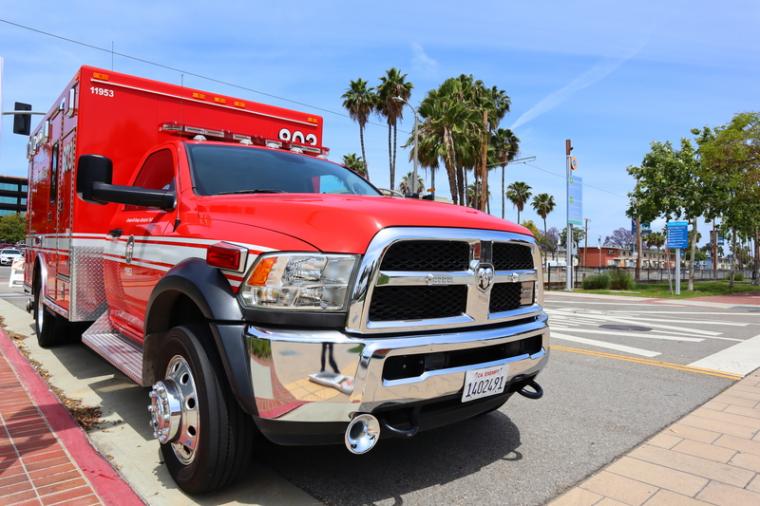

When hosting a sports event, whether on the youth, collegiate or pro level, finding the correct professional to provide medical services is one of the most important decisions you as an event owner will make. However, with market-to-market events, it can be extra challenging, not to mention a little daunting. After all, you’re coming into a new city and you’re not familiar with the medical practices and institutions there.
If you want to create a relationship with the appropriate entity to provide care, you’ll need to do some research and just as importantly, ask some pointed questions. Approach it the same way you would the search for a host city, a competition facility or a host hotel for your event: by doing your due diligence.
Ask the Appropriate Questions
Perhaps the most important question you can ask is whether the organization (a sports medicine professional practice, for example) has experience relevant to the type of event you’ll be putting on. For example, if your event is a road racing series with mainly adult athletes, you’ll want to know whether the person or practice has any experience in providing medical coverage for 5Ks, half marathons and other running events. If you’re putting on a youth soccer or lacrosse tournament, a different approach and knowledge base will be needed. Additionally, if the professional you’re talking to participates in (or at least is interested in) the sport you’re putting on, it’s likely that person will have a good understanding of the kind of injuries that might occur.
Provide a Complete Background on Your Event
Be ready to provide all the information your potential partner will need. In addition to the type of sport being put on, other salient facts might include the age (or age range) of the participants, their skill level, the duration of the event (Is it is a multi-day event? What are the hours athletes will be competing?), the venue and any logistical challenges you may be aware of. You’ll also need to supply answers on whether spectators will be present (and if so, how many), as well as any other relevant information.
How Many Professionals Do I Need?
There is no hard and fast rule for how many medical professionals are going to be needed for a given sports event; it depends on the type of competition you’re putting on and the setting you have chosen for it. If, for example, you are putting on a marathon, you’ll want medical support tents at various points along the course, with more support in the second half of the race.
It is overkill to have doctors spread throughout the race; having athletic trainers or PAs at those stations is a more practical option since they may just be dealing with issues like sprains or strains. These physician extenders will be able to assess athletes’ symptoms and call for the doctor if the person is suffering from something more complex. Trainers will also be able to call for emergency transport if necessary. If you’re putting on a youth soccer or lacrosse tournament on a multi-field complex, you can have trainers circulating around the venue, with the physician reachable by phone in case of injuries or other unexpected medical situations that might arise.
The Medical Services Budget
The obvious advantage of using trainers, rather than doctors, is that their hourly rate is going to be lower, which means you can retain and deploy more of them for the event you’re putting on. (And since you’re responsible for the budget of your event, that is an important consideration). In my experience with college teams, we found trainers to be invaluable; in addition to being able to treat injuries that occur during the course of practices or games, they are skilled in applying tape, teaching athletes about the importance of stretching and preventative measures in addition to giving good, practical advice.
The medical professional or practice you choose should be well-versed in the types of injuries that might occur in a given situation. A Spartan Race, for example, has a number of obstacles and challenges; medical support personnel who are working at this type of event will need to be aware of the potential for a wider variety of injuries than might be seen at a Little League World Series, for example.
As long as you’re discussing preparations for specific events, be sure to ask what equipment you need to supply and what equipment your medical partner will supply. (Hint: Ask this well ahead of time in case supplies need to be ordered).
Concussions
One question we’re often asked is whether and how appropriate attention can be given to athletes who incur head injuries. In the 20 years I have spent on the sidelines, I’ve seen the growth of awareness of the dangers of concussions, not just on the part of coaches but athletes as well. Athletes know that concussions can, over time, lead to larger problems, including cognitive issues.
Today, athletes are self-reporting when they think they might have a concussion, and coaches are listening to them. We now know that if you see a doctor and get treatment early, your time on the injured list is likely to be a lot shorter. Even a 24-hour delay in reporting and seeking treatment can make recovery take a lot longer so it’s always in the athlete’s best interest to sit out a game and see a doctor immediately.
Of course, the likelihood of concussions depends upon not just the sport but the level of play. For example, football at the college level is intensely physical and carries a higher risk of injury than a U8 football tournament organized by a park and rec department.
Ambulances
One question people often ask is whether they need an ambulance parked on the premises for their event. And again, it depends on the event itself; some sports carry a higher risk for catastrophic injury. Events such as gymnastics, hockey, boxing and MMA, for example, are riskier than volleyball – but that does not mean you automatically need the ambulance for those sports. Take into consideration the skill level and age of participants; at some of the lower ages and levels, there may not be as many risky situations or injuries.
The Right Professional Will Understand Your Athletes
Some injuries can only be corrected surgically. ACL injuries are probably the most well-known of these, although there are plenty of others. Telling an athlete their season is over, and that they’re going to need surgery and physical therapy if they want to play again, is one of the most difficult conversations to have, particularly on the sidelines with everyone watching. It’s not uncommon for players to get very emotional. We usually try to get them into one of the sideline tents for some privacy when we talk to them. Your medical partner should be prepared for these kinds of situations as well, particularly if injuries take place during a game with a lot of spectators around.
Make Sure to Recognize Your Medical Partner as a Part of Your Team
Your medical service provider is someone with whom you’ll be working closely, and therefore, whose judgement, knowledge and skills are trusted not just by you but by everyone in your operation. Recognize that your medical partner is a valued part of your team, with the same goals you have: a successful event that provides a good experience for your athletes. Thanking your medical provider, both in person, and in other ways, such as on signage for the event or in the mobile app, goes a long way toward creating a lasting relationship for the next time your event comes to town. SDM

